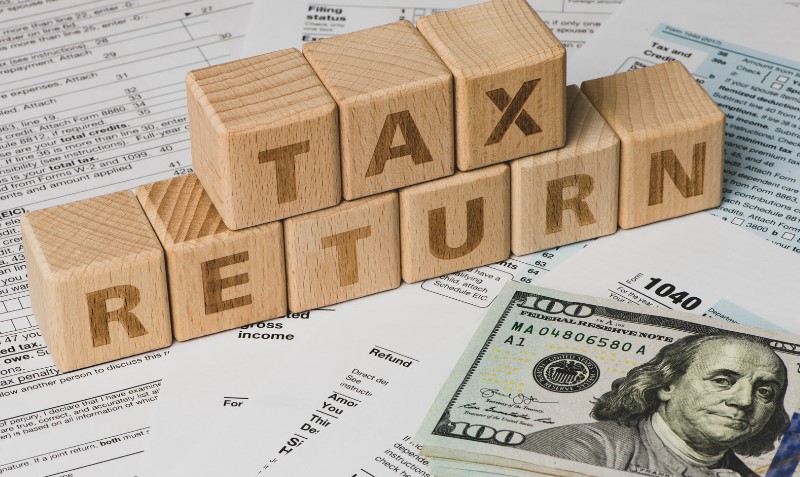Tax season can be stressful for many Canadians, but knowing when to expect your tax return can make it a little less daunting. Whether you’re hoping for a refund or anticipating owing money, understanding the timeline of your tax return is important. So, how long does it take to get a tax return in Canada? In this blog post, we’ll dive into everything you need to know about getting your money back from the government and answer some common questions. So, get ready to learn all about taxes and refunds!
How Long Does It Take to Get a Tax Return in Canada?
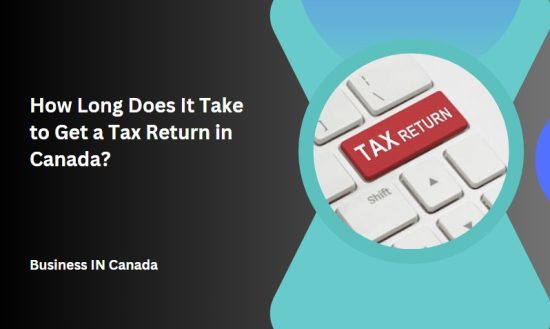
When it comes to getting your tax return in Canada, the timeline can vary depending on a number of factors. Generally speaking, if you file your taxes electronically and choose to receive your refund via direct deposit, you can expect to receive your refund within two weeks.
Sometimes, certain situations may require a longer amount of time. For example, if you filed a paper tax return rather than filing online, it could take up to eight weeks for the Canada Revenue Agency (CRA) to process and issue your refund.
Any errors or mistakes on your tax return that need correcting before the CRA can approve it and issue your refund will also add time to the process.
It’s important to note that while many people do receive their refunds within two weeks of filing electronically with direct deposit selected as their payment method, this is not a guarantee. There are always variables at play when dealing with government agencies like the CRA.
If you’re concerned about the status of your tax return or have been waiting longer than expected for your refund to arrive after filing online with direct deposit selected as your payment method, consider checking in with the CRA directly for more information.
How Does a Tax Refund Work in Canada?
When an individual or business pays more taxes than they owe to the government, they may be eligible for a tax refund, which is a reimbursement of the excess amount paid. In Canada, you may be eligible for a tax refund if you have overpaid your income tax throughout the year. Your refund amount will depend on various factors, including your income and deductions.
When filing your taxes in Canada, it’s important to claim all eligible deductions and credits that could decrease the amount of taxes owed. This can include expenses such as childcare costs or medical expenses.
Once you’ve filed your tax return and it has been processed by the CRA (Canada Revenue Agency), they will determine whether you are entitled to a refund or not. If approved, they will issue your refund either through direct deposit or by mailing a cheque to you.
It’s important to note that receiving a tax refund isn’t always guaranteed – some individuals may owe additional taxes instead. It’s also important not to rely on receiving a large tax refund each year as an alternative form of savings since this means giving up access to that money throughout the year without earning any interest on it.
Am I Eligible for a Tax Refund?
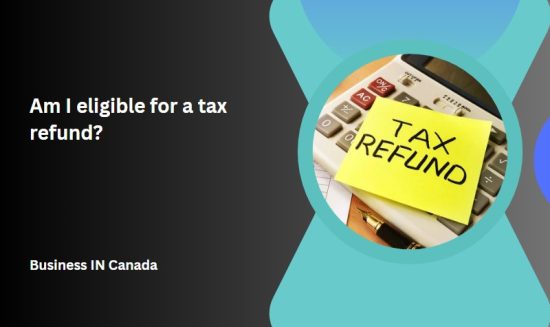
When it comes to taxes, many Canadians are often confused about whether they’re eligible for a tax refund. The simple answer is that if you’ve paid more in taxes than you owe, you could be eligible for a refund.
There are various reasons why you might have overpaid on your taxes. For example, if your employer deducted too much from your paycheque throughout the year or if you made contributions to RRSPs or other registered plans.
To determine whether you qualify for a tax refund, start by calculating your total income and deductions using the information provided on your T4 slip and any receipts or documentation related to tax credits and deductions claimed.
If, after completing this calculation, it turns out that you’ve overpaid on your taxes – congratulations! You may be entitled to receive some money back from the government.
However, keep in mind that there are also instances where individuals may owe additional taxes instead of receiving refunds. This can happen if there were errors made when filing their return or if they had additional income not accounted for during the year.
Determining whether you’re eligible for a tax refund depends on various factors, including accurate reporting of income and expenses throughout the year. Always consult with a qualified accountant or financial advisor if unsure about eligibility requirements.
How Do I Calculate My Tax Refund?
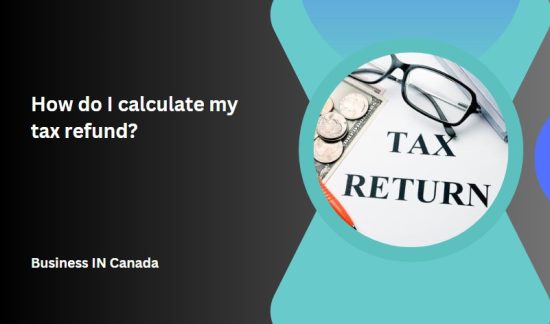
Calculating your tax refund can be confusing, but knowing how much you are owed is important. Your refund amount is based on the difference between the taxes you paid throughout the year and the total amount of tax that was actually owed.
To calculate your refund accurately, gather all of your income documents, including T4s and receipts for expenses like medical bills or charitable donations. Next, subtract any deductions from your total income to arrive at your taxable income.
Once you have determined your taxable income, use the Canadian tax brackets for the current year to determine how much tax you owe. Subtract this amount from what was already withheld from each paycheck throughout the year.
If there is a difference between these two amounts, this is either additional taxes owed or money refunded to you. Be sure to double-check all calculations and consider consulting with a professional if necessary.
By taking steps to calculate your tax refund accurately, you’ll be able to make more informed decisions about how to spend or save that extra cash once it arrives!
How You File Affects When You Get Your Refund?
How you file your tax return can significantly impact when you receive your refund from the Canada Revenue Agency (CRA). The two main ways of filing taxes in Canada are through paper forms or using tax preparation software online.
If you choose to file your taxes by mail, it can take significantly longer for the CRA to process and approve your return compared to e-filing. This is because paper returns require manual processing, which takes longer than electronic submissions. Generally, it takes about eight weeks for the CRA to process a paper return, while e-filed returns are processed within two weeks.
If you prefer filing online, several options, such as TurboTax or SimpleTax, offer fast and efficient services. When using these programs, refunds can be deposited directly into bank accounts within one week of submitting the return.
It’s also worth noting that any errors or omissions on your tax return will delay the processing time and potentially result in an adjustment being made by the CRA before issuing a refund. In some cases where fraud is suspected or further investigation is required, this could extend beyond 16 weeks.
Filing your taxes electronically is generally quicker and more efficient than sending them via mail. In addition, ensuring that all information provided on your tax form is accurate; will help minimize delays in receiving any refunds from other benefits like GST/HST credit payments or Child Tax Benefit payments too!
Why Haven’t You Received Your Refund?
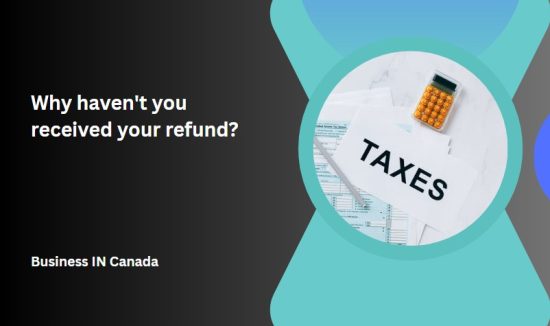
There’s no need to panic if you haven’t received your tax refund yet. There could be several reasons why it’s taking longer than expected.
One reason could be that there is a delay in processing your return due to errors or missing information. Make sure you’ve included all necessary documents and double-check for any mistakes on your return.
Another reason could be that the Canada Revenue Agency (CRA) is experiencing high volumes of returns and refunds, causing delays in processing times. This can happen during peak tax season, which typically runs from March to May.
Additionally, if you owe money to the government for previous years’ taxes or other debts, they may use your current refund to offset those amounts. In this case, you’ll receive a notice explaining how much was withheld and why.
Some people who file their taxes electronically using software like TurboTax or SimpleTax may experience delays because of technical issues with the software or CRA systems.
There are many factors that can affect when you receive your tax refund. If it’s been over eight weeks since filing electronically (or six weeks if filing by paper), check the status online using My Account or contact the CRA for more information.
Conclusion
As we end this blog on how long it takes to get a tax return in Canada, it’s important to remember that every individual’s situation is unique. The time it takes to receive your tax refund can vary based on several factors, including how and when you file your taxes.
One thing is certain though – if you’re eligible for a tax refund, the Canadian Revenue Agency (CRA) will issue one as soon as possible. There could be many reasons why there has been a delay.
It’s always helpful to track the status of your tax return through CRA My Account or by calling their helpline. Additionally, make sure all information submitted with your tax return is accurate and up-to-date.
Remember that filing early can also increase your chances of receiving an early refund. Keep in mind that paper returns take longer than electronic ones, so e-filing may be worth considering next year.
While there isn’t a definitive answer regarding exactly how long it takes to get a tax return in Canada, being patient and proactive are key steps towards ensuring you receive yours as quickly as possible.
FAQ – How Long Does It Take to Get a Tax Return in Canada?
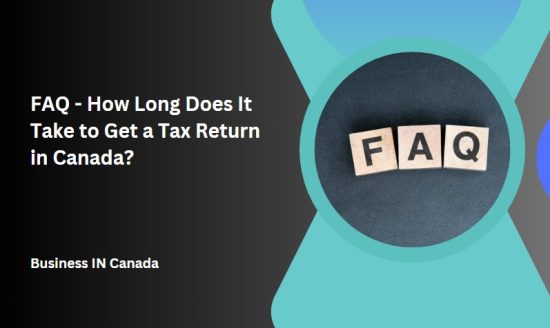
How long does it take to get a direct deposit for a tax return Canada?
If you’ve opted to receive your tax refund through direct deposit, you may wonder how long the money will take to hit your bank account. The good news is that direct deposit is usually the fastest way to get your refund in Canada.
According to the Canada Revenue Agency (CRA), most tax refunds should be processed within two weeks of receiving your return electronically. The timeline for this can differ based on certain factors.
Firstly, if there are mistakes or discrepancies on your return, it could delay processing time. Similarly, if you’re selected for review or audit by the CRA, they could take longer to verify and process your return.
It’s also worth noting that weekends and holidays can affect processing times. It may take slightly longer than expected if you file close to a holiday weekend or during peak tax season (March-April).
Opting for direct deposit is still likely the quickest way to get your refund – just make sure all information provided on your return is accurate and up-to-date!
How long does it take to get tax return Canada TurboTax?
If you filed your taxes using TurboTax in Canada, you might be wondering how long it will take to receive your tax refund. The good news is that if you file online and choose direct deposit, the process can be faster than mailing in a paper return.
Generally speaking, once the Canada Revenue Agency (CRA) receives your electronically-filed tax return from TurboTax, they aim to issue most refunds within two weeks. This timeline assumes that there are no issues or discrepancies with your return that require further review.
However, it’s important to note that this timeline can vary depending on factors such as the volume of returns being processed by the CRA during peak filing season (March-April), and whether additional documentation or information is required before your refund can be issued.
To check the status of your TurboTax-filed tax return and refund, log into your CRA My Account portal or use the CRA’s My CRA mobile app. These tools allow you to view personalized information about what stage of processing your return is in and when you can expect to receive any refunds owed.
While there is no guaranteed timeline for receiving a tax refund after filing with TurboTax in Canada, choosing e-filing and direct deposit options may help expedite the process.
How do I know when my tax return will be deposited Canada?
If you e-filed your tax return and opted for direct deposit, the Canada Revenue Agency (CRA) usually processes it within two weeks. However, the processing time may vary depending on different factors such as the complexity of your return, CRA’s workload and the volume of returns received.
You can use CRA’s online My Account service or call their automated phone line to check when your tax refund will be deposited. To register for My Account, you need to provide some personal information, including your social insurance number (SIN), date of birth and postal code.
Once registered, log in to My Account and select “View Returns” from the main menu. Then click on “Tax Returns” followed by “Assessment Status”. Here you’ll find if your return has been assessed or not yet. If it has been assessed, look for the “Refund” section, which shows whether a refund has been issued or not.
Why is CRA taking so long?
There are several reasons why the Canada Revenue Agency (CRA) may take longer than expected to process your tax return and issue a refund. One of the most common reasons is an error or discrepancy on your tax return. If there are mistakes, missing information, or inconsistencies in your filing, it can delay processing.
Another reason for delays could be due to backlogs at the CRA during peak tax season. With millions of Canadians submitting their returns at once, it’s not uncommon for the agency to experience delays in processing times.
Additionally, suppose you have outstanding debts with the government or owe money from previous years’ taxes. In that case, any refunds owed to you will be applied towards those debts first before being released. This can also cause further delays in receiving your refund.
If you filed through paper instead of electronically or chose to receive a cheque instead of direct deposit, this can also add additional time.
It’s important to note that while waiting for your refund may be frustrating, contacting CRA should only be done after checking online and allowing enough time for processing and mailing out refunds.
How do I check the status of my refund?
Checking the status of your tax refund in Canada is easy and can be done online through the CRA’s My Account service. To use this service, you will need to create an account with the CRA and provide some personal information, such as your social insurance number and date of birth.
Once you have access to your account, you can check on the status of your refund at any time. The CRA updates their system daily with new information, so you can rest assured that you will see up-to-date details about your refund.
If there are any issues or delays with processing your return, checking on it regularly through My Account will help keep you informed. You may also receive notifications from the CRA if they require additional information from you or if there are any changes to your expected refund amount.
While waiting for a tax return in Canada may seem like a daunting process at first glance, understanding how it works will make it easier for taxpayers to plan accordingly. Remember that filing early and correctly is key to receiving refunds promptly. If necessary, reach out to the CRA directly for more information about the status of your tax return or consult a professional accountant for assistance.




